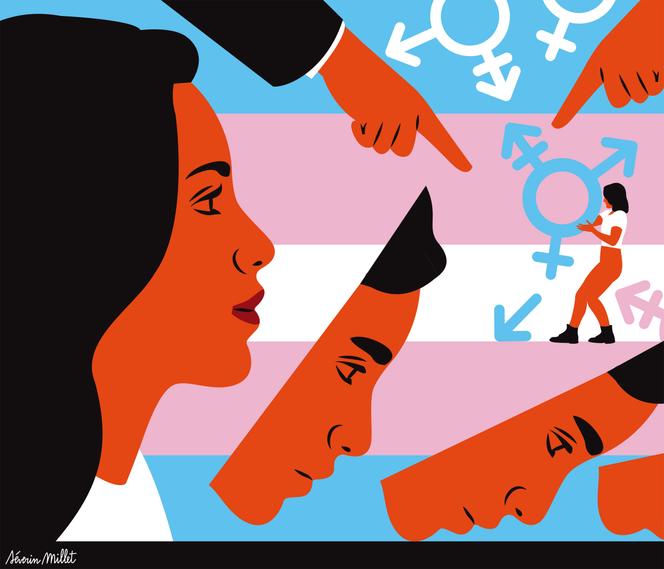


"So we're going to be asked to hide our children until they're 18?" Maryse Rizza, the mother of a transgender teenager, has been equally angry and worried since she learned of the political project that is being championed by a fringe faction of the Les Républicains (LR, right) party. A report by French senators on transgender minors, revealed by Le Figaro and Le Point on March 18, calls for a ban on hormone therapy and puberty blockers, which can be prescribed to combat gender dysphoria (the suffering caused by the mismatch between one's sex as assigned at birth and one's gender identity).
Senator Jacqueline Eustache-Brinio, who took up the issue together with some 15 other senators from her right-wing party, Les Républicains, plans to introduce a bill on the subject before the summer. "Today, it is done too quickly, young people are steered towards a transition too quickly. Instead, they need to be accompanied regarding their unease and encouraged to seek psychiatric care," she said, calling attention to a "growing phenomenon in the media and in public life," while "all" foreign countries, she claimed, are backing away from prescribing these treatments. The senator acknowledged that she had placed this parliamentary project under the auspices of the Observatoire de la Petite Sirène ("Little Mermaid Observatory"), an organization that is notoriously opposed to all gender transitions by minors.
Throughout the report's 369 pages, the authors repeatedly brandish alarming phrases such as "health scandal," "social contagion," and painful "detransitions" – but it cannot be reduced to just that. The report t also takes into account the points of view of a multitude of stakeholders and experts, both in France and internationally. And it raises questions that deserve to be answered in depth: How many children are affected by gender dysphoria? How many have regretted their transition? How irreversible are the treatments? Yet the report's recommendations are a world away from the lived experiences recounted by those most directly concerned.
Rizza, who is also the president of the association Grandir Trans ("Growing up Trans"), which includes 1,300 families, is one of the 67 people who were questioned by the senators during hearings. "It's panic," she said. "If we're heading towards a bill that bans blockers, what are we going to do?" Her son, now 17, came out when he was 9: "He told me he was imprisoned in his body," a girl's body, she recalled. "There's an enormous amount of suffering that comes out when the transidentity is named. At the time, he would just say 'I want to be a boy, I'm a boy'."
You have 75.95% of this article left to read. The rest is for subscribers only.
